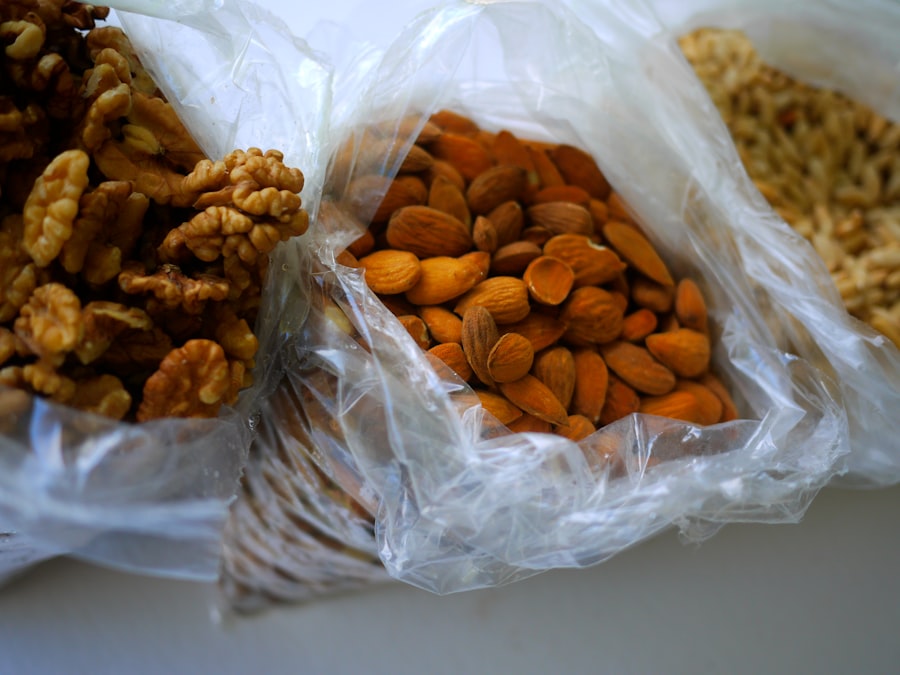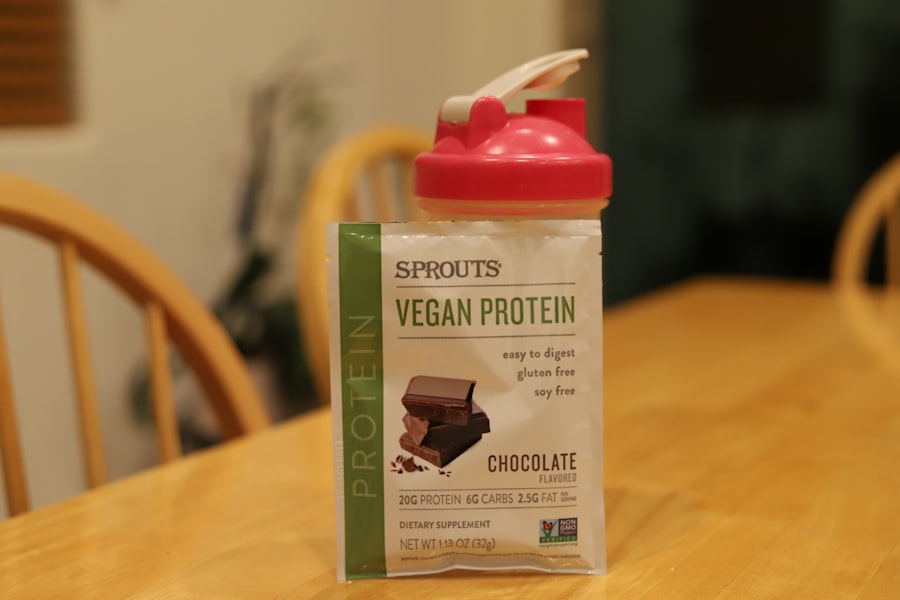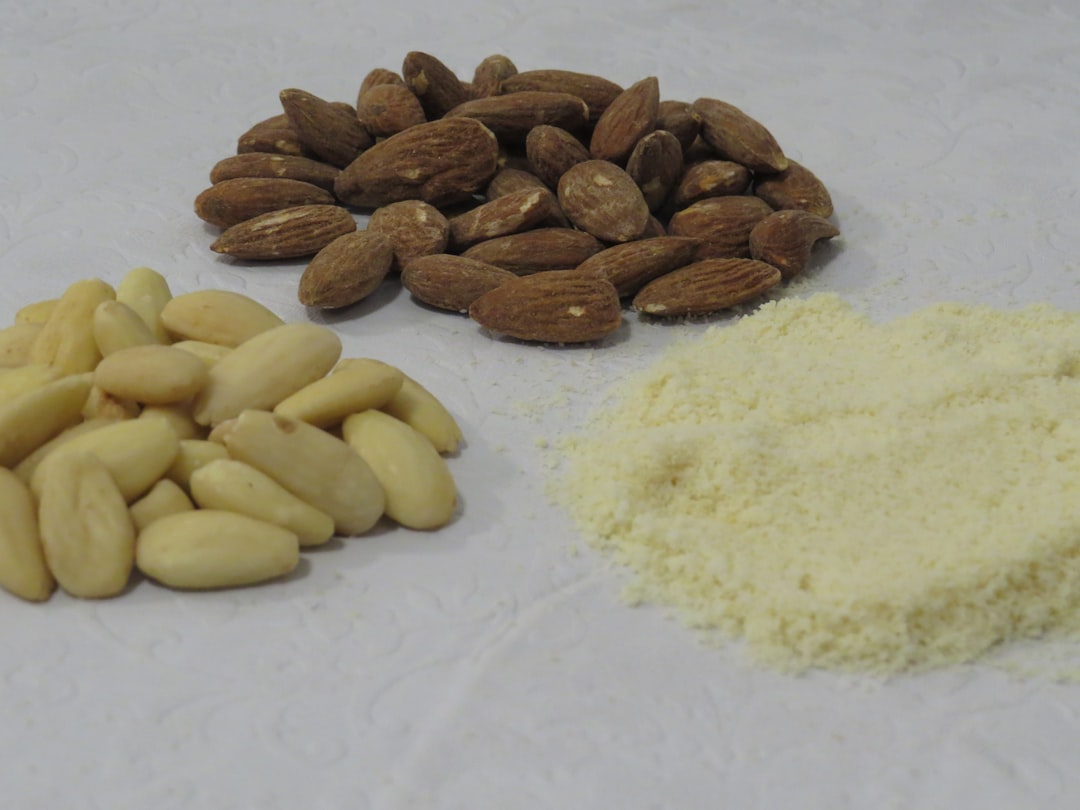As you age, maintaining optimal brain health becomes increasingly important. The brain, like any other organ in your body, requires specific nutrients to function effectively. Among these nutrients, protein plays a crucial role in supporting cognitive function and overall brain health.
Understanding the relationship between protein intake and brain health can empower you to make informed dietary choices that promote mental clarity, memory retention, and emotional well-being as you navigate the later stages of life. Incorporating a variety of protein sources into your diet can help ensure that your brain receives the essential amino acids it needs for neurotransmitter production and repair. This article will explore the significance of protein for senior brain health and highlight various protein-rich foods that can enhance cognitive function.
By making conscious decisions about your dietary habits, you can take proactive steps toward preserving your mental acuity and enjoying a fulfilling life.
Key Takeaways
- Protein is essential for senior brain health, as it supports cognitive function and helps maintain brain health.
- Fish is a rich source of protein and omega-3 fatty acids, which are beneficial for senior brain health.
- Nuts and seeds are protein-packed snacks that can support senior brain health and provide essential nutrients.
- Lean meats are high-quality protein sources that can help maintain senior brain function and overall health.
- Eggs are nutrient-dense and provide essential protein for senior brain health, making them a valuable addition to the diet.
Importance of Protein for Senior Brain Health
Protein is often associated with muscle health, but its benefits extend far beyond physical strength. For seniors, adequate protein intake is vital for maintaining cognitive function. Proteins are made up of amino acids, which are the building blocks of neurotransmitters—chemicals that transmit signals in the brain.
A deficiency in these essential nutrients can lead to cognitive decline, memory issues, and even mood disorders. By ensuring that you consume enough protein, you can support the production of these neurotransmitters, thereby enhancing your brain’s ability to communicate effectively. Moreover, protein plays a role in neuroplasticity—the brain’s ability to adapt and reorganize itself.
This adaptability is crucial for learning new skills and retaining information. As you age, neuroplasticity may decline, but a diet rich in protein can help mitigate this effect. By prioritizing protein in your meals, you not only nourish your body but also provide your brain with the tools it needs to thrive.
This understanding underscores the importance of making protein a staple in your daily diet.
Fish: A Rich Source of Protein and Omega-3 Fatty Acids

When it comes to brain health, fish stands out as one of the most beneficial sources of protein. Fatty fish, such as salmon, mackerel, and sardines, are not only rich in high-quality protein but also packed with omega-3 fatty acids. These essential fats are known for their anti-inflammatory properties and their ability to support cognitive function.
Omega-3s play a critical role in building brain cell membranes and promoting communication between neurons, which is vital for memory and learning. Incorporating fish into your diet a few times a week can significantly enhance your brain health. Whether you enjoy it grilled, baked, or in a hearty stew, the versatility of fish makes it easy to include in various meals.
Additionally, the combination of protein and omega-3 fatty acids found in fish can help reduce the risk of cognitive decline and neurodegenerative diseases such as Alzheimer’s. By making fish a regular part of your diet, you can take proactive steps toward safeguarding your cognitive abilities.
Nuts and Seeds: Protein-Packed Snacks for Senior Brain Health
| Snack | Protein Content (per 1 oz) | Calories (per 1 oz) |
|---|---|---|
| Almonds | 6g | 164 |
| Walnuts | 4g | 183 |
| Peanuts | 7g | 161 |
| Sunflower Seeds | 6g | 165 |
Nuts and seeds are not only delicious but also serve as excellent sources of protein for seniors looking to boost their brain health.
These snacks are rich in healthy fats, antioxidants, vitamins, and minerals that contribute to overall well-being.
The combination of protein and healthy fats found in nuts and seeds can help improve blood flow to the brain, enhancing cognitive function. In addition to their nutritional benefits, nuts and seeds are incredibly convenient snacks that require no preparation. You can easily toss a handful into your bag for a quick on-the-go option or sprinkle them over salads and yogurt for added crunch and flavor.
By incorporating these nutrient-dense snacks into your daily routine, you not only satisfy your hunger but also provide your brain with essential nutrients that support mental clarity and focus.
Lean Meats: High-Quality Protein for Senior Brain Function
Lean meats such as chicken, turkey, and lean cuts of beef are excellent sources of high-quality protein that can significantly benefit senior brain health. These meats provide essential amino acids necessary for neurotransmitter production and overall brain function. Additionally, lean meats are often rich in iron and zinc—two minerals that play crucial roles in cognitive health.
Iron is vital for oxygen transport in the blood, while zinc is essential for memory formation and learning. When preparing meals, consider incorporating lean meats into your diet several times a week. Grilled chicken breast or turkey stir-fry can be both satisfying and nutritious options that provide the protein your brain craves.
By choosing lean cuts and cooking methods that minimize added fats, you can enjoy the benefits of high-quality protein without compromising your overall health. This approach not only supports cognitive function but also contributes to maintaining a healthy weight as you age.
Eggs: Nutrient-Dense Protein for Senior Brain Health

Eggs are often hailed as one of nature’s most complete foods due to their impressive nutrient profile. They are an excellent source of high-quality protein and contain essential vitamins such as B12 and choline—both of which are crucial for brain health. Choline is particularly noteworthy as it plays a significant role in the production of acetylcholine, a neurotransmitter involved in memory and learning processes.
Incorporating eggs into your diet is simple and versatile; they can be enjoyed scrambled, poached, or hard-boiled as a quick snack or added to salads for extra nutrition. The combination of protein and other vital nutrients found in eggs makes them an ideal choice for seniors looking to enhance their cognitive function. By including eggs regularly in your meals, you can support your brain’s health while enjoying a delicious and satisfying food.
Dairy Products: Calcium and Protein for Senior Brain Health
Dairy products such as yogurt, cheese, and milk are not only rich sources of calcium but also provide high-quality protein essential for maintaining cognitive function. Calcium is crucial for neurotransmitter release and plays a role in maintaining healthy brain cells. Additionally, dairy products often contain probiotics that support gut health—an increasingly recognized factor in overall well-being and cognitive function.
Incorporating dairy into your diet can be both enjoyable and beneficial for your brain health. A bowl of yogurt topped with fresh fruit and nuts makes for a nutritious breakfast or snack option that combines protein with other essential nutrients. Cheese can be added to salads or enjoyed on whole-grain crackers for a satisfying treat.
By choosing low-fat or fat-free options when possible, you can reap the benefits of dairy while managing calorie intake.
Legumes: Plant-Based Protein for Senior Brain Function
For those who prefer plant-based options or are looking to diversify their protein sources, legumes such as beans, lentils, and chickpeas offer an excellent alternative. These foods are not only rich in protein but also packed with fiber, vitamins, and minerals that contribute to overall health. The fiber content helps regulate blood sugar levels and supports digestive health—factors that indirectly influence cognitive function.
Incorporating legumes into your meals can be both easy and delicious. You might enjoy a hearty lentil soup or a chickpea salad loaded with vegetables for lunch or dinner. The versatility of legumes allows you to experiment with various recipes while ensuring you’re getting the necessary nutrients to support your brain health.
By embracing plant-based proteins like legumes, you can enjoy a diverse diet that nourishes both body and mind.
Poultry: Lean Protein for Senior Brain Health
Poultry is another excellent source of lean protein that can significantly benefit senior brain health. Chicken and turkey are not only low in saturated fat but also provide essential amino acids necessary for neurotransmitter production. These meats are versatile ingredients that can be easily incorporated into various dishes—from soups to stir-fries—making them an ideal choice for maintaining a balanced diet.
When preparing poultry dishes, consider using herbs and spices to enhance flavor without adding extra calories or unhealthy fats. Grilled chicken breast served with roasted vegetables or turkey meatballs in marinara sauce can be both satisfying and nutritious options that support cognitive function. By including poultry regularly in your meals, you ensure that you’re providing your brain with the high-quality protein it needs to thrive.
Quinoa and Whole Grains: Protein and Fiber for Senior Brain Function
Quinoa and other whole grains are often overlooked sources of protein that can play a significant role in supporting senior brain health. Quinoa is unique among grains because it contains all nine essential amino acids, making it a complete protein source. Additionally, whole grains like brown rice, barley, and oats provide fiber that aids digestion and helps regulate blood sugar levels—important factors for maintaining cognitive function.
Incorporating quinoa into your meals is simple; it can be used as a base for salads or served alongside vegetables as a side dish. Whole grains can be enjoyed as breakfast cereals or added to soups for added texture and nutrition. By prioritizing whole grains in your diet, you not only increase your protein intake but also benefit from the additional nutrients that support overall well-being.
Incorporating Protein Sources into a Senior’s Diet for Brain Health
As you navigate the journey of aging, prioritizing brain health through proper nutrition becomes paramount. Protein plays an essential role in supporting cognitive function by providing the necessary building blocks for neurotransmitters and promoting neuroplasticity.
Making conscious dietary choices not only nourishes your body but also empowers you to maintain an active mind as you age gracefully. Embrace the diverse array of protein-rich foods available to you; each meal presents an opportunity to support your brain health while enjoying delicious flavors and textures. By committing to a balanced diet rich in protein, you set yourself on a path toward improved cognitive function and overall well-being in your golden years.
In the quest to maintain optimal brain health as we age, incorporating the right protein sources into our diet is crucial. A related article on this topic can be found on Explore Senior Health, which delves into various dietary choices that support cognitive function in seniors. The article highlights the importance of lean proteins, such as fish and legumes, which are rich in essential nutrients that promote brain health. For more detailed insights, you can read the full article by visiting Explore Senior Health.
WATCH THIS!🧠 The Breakfast Mistake That Fuels Senior Memory Loss
FAQs
What are the best protein sources for senior brain health?
The best protein sources for senior brain health include fish, poultry, eggs, dairy products, legumes, nuts, and seeds.
Why are these protein sources beneficial for senior brain health?
These protein sources are beneficial for senior brain health because they contain essential amino acids, omega-3 fatty acids, and other nutrients that support cognitive function and overall brain health.
How much protein should seniors consume for optimal brain health?
Seniors should aim to consume around 1 to 1.2 grams of protein per kilogram of body weight per day to support optimal brain health.
Are there any protein sources that seniors should avoid for brain health?
Seniors should limit their intake of processed meats and red meats, as these have been linked to negative effects on brain health when consumed in excess.
What are some easy ways for seniors to incorporate these protein sources into their diet?
Seniors can incorporate these protein sources into their diet by including them in meals such as grilled fish, chicken stir-fry, omelets with vegetables, yogurt with nuts and seeds, and bean salads.
